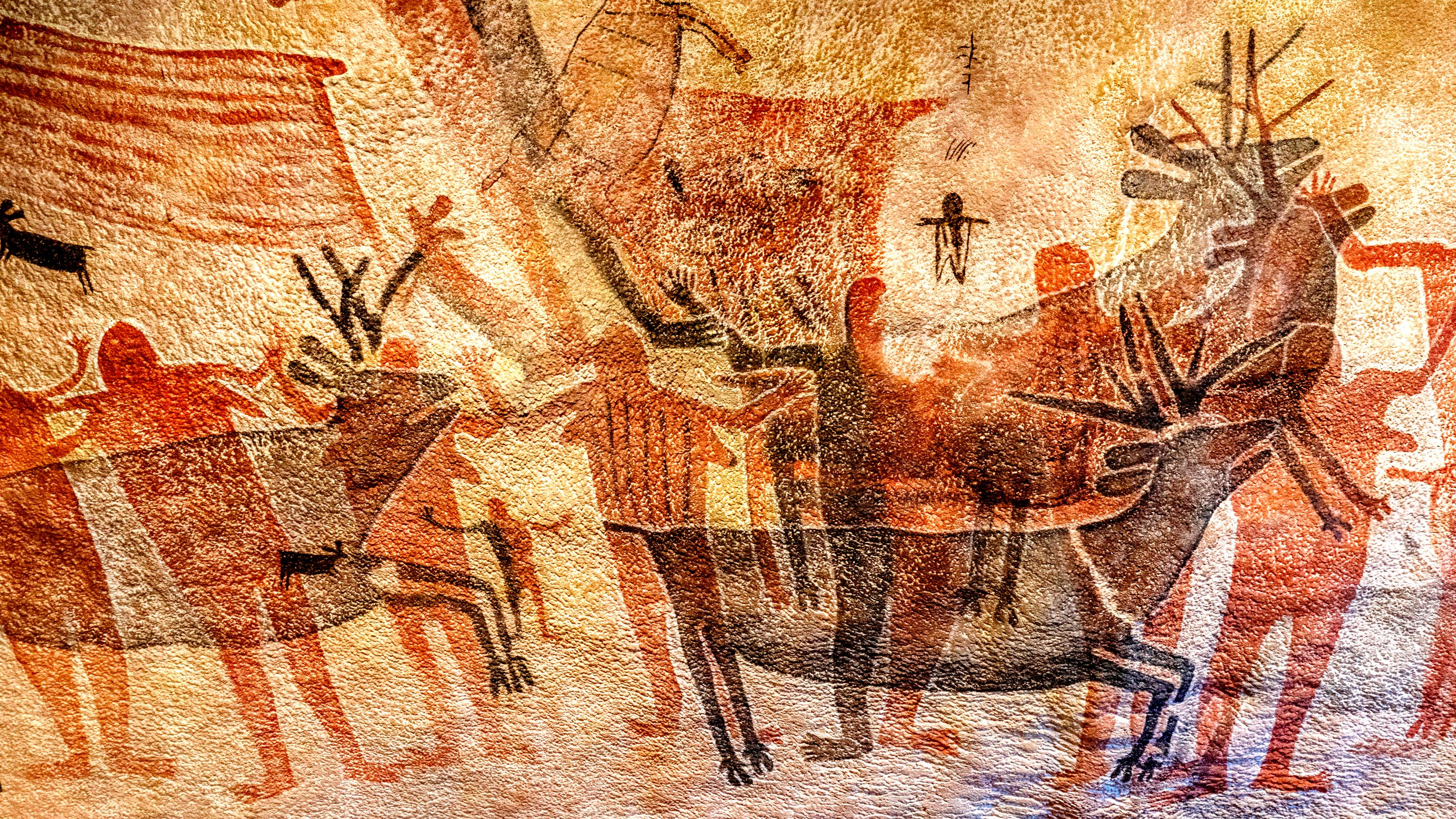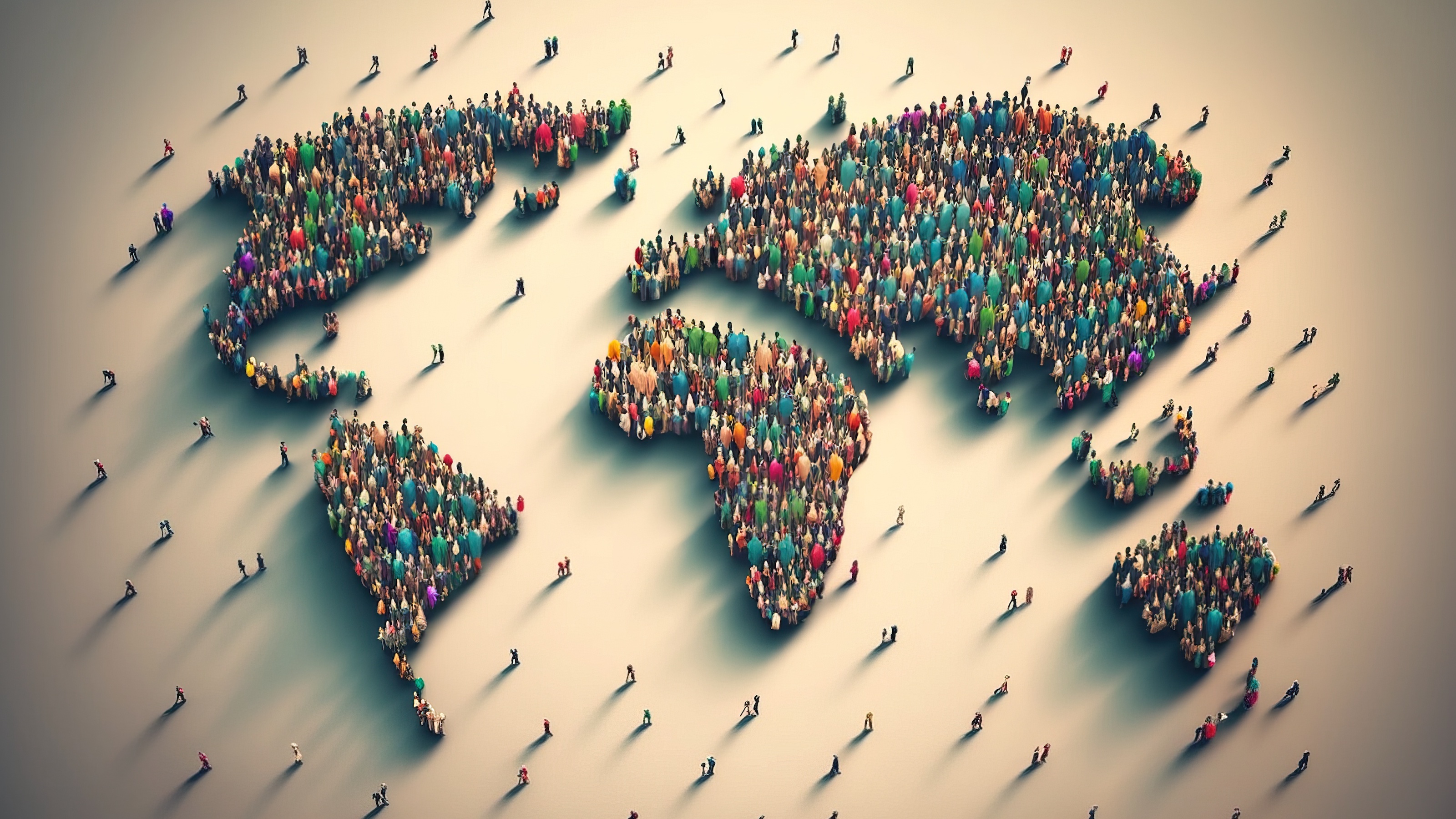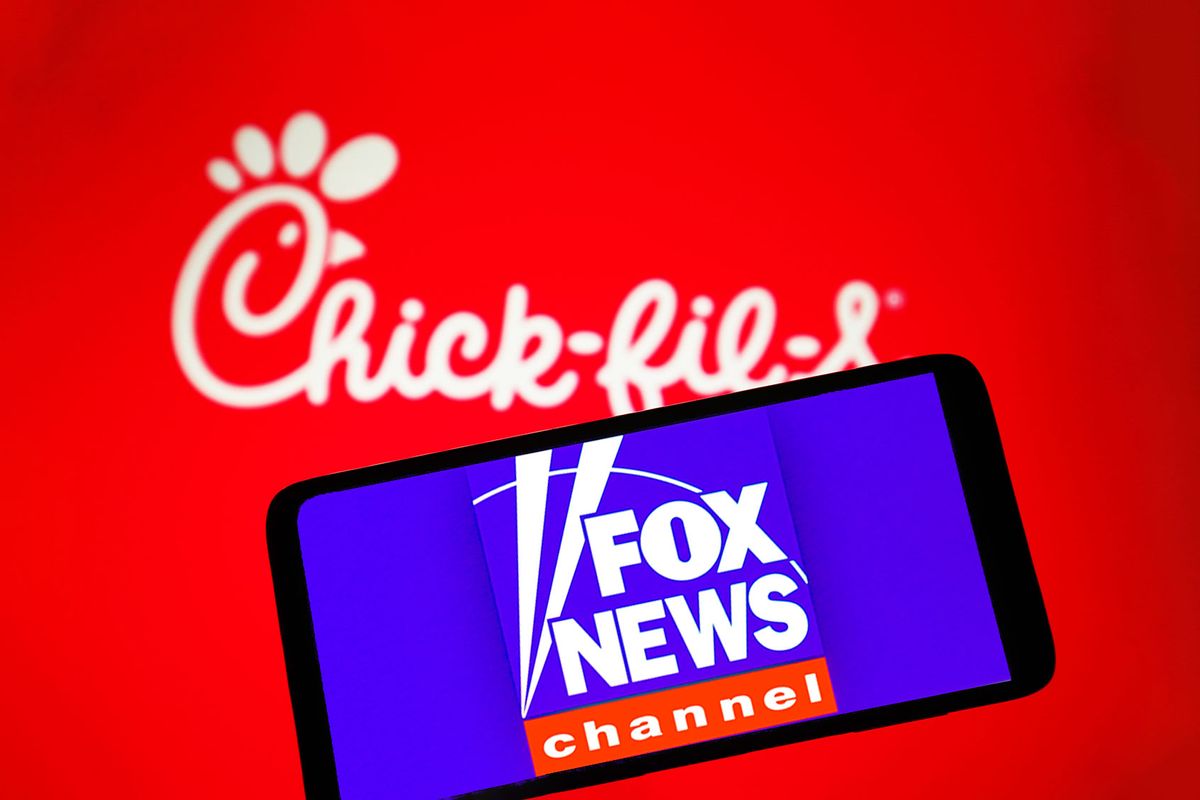Today’s topics:
- How tribalism, evolutionary evolved, solved some problems and created others, especially in the modern world;
- The counter idea of “coöperism”;
- Current events about Chick-fil-A and Republican condemnation of anti-racism.
I talk of politics as manifesting ‘tribalism’ a lot; tribalism is a real thing, and it evolved for a reason. But the world has expanded, and many of the problems of the world today come from competing tribes, who by definition don’t want to cooperate. So are we doomed to the corrosive effects of competing tribes forever? Can the world never come together to solve global problems? Here’s an excerpt from a recent book that I noticed as interesting, but haven’t decide to buy, at least not yet.

Big Think, David R. Samson, 30 May 2023: Humanity solved the “trust paradox” by going tribal — and paid a horrific price, subtitled “Evolutionary pressures drove the formation of tribes who encoded their values in myths and symbols. Was this cooperation cursed?”

An excerpt from Samson’s book Our Tribal Future: How to Channel Our Foundational Human Instincts into a Force for Good, from St. Martin’s Press.
Key Takeaways
One of the most intractable problems for all social species is whom to trust. Different parts of the brain seek different solutions to the same problem — leading to the “trust paradox.” After kin, humanity put its trust in friends and then in tribes.
Beginning with the earliest step:
Kin selection—the preferential bias for those who are genetically related—was the first answer concocted by evolution several hundred million years ago and has faithfully served Earthlings ever since. The challenge is scale. When considering plants, social insects, and even naked mole rats, kin selection works predictably. However, when you scale up complexity to species that rely on meaty brains, long-term memory, and special kinds of social arrangements, then something else is needed.
Then invoking the trolley problem and the Trust Paradox.
The next solution, after kin, was friendship. Rare in the animal kingdom, friendships worked keenly for humans living in face-to-face social worlds. Humans are not the only species with friendship, but it’s not typical in the animal world and the way human friendship is expressed is special. Friendship serves as our species’ crowning ethical achievement and has been suggested to be the origin point for the evolutionary emergence of morality.
As opined by Nicholas Christakis: “Our assembly into networks of friendships sets the stage for the emergence of moral sentiments. At their core, moral compunctions relate to how people interact with others, especially those who are not kin and for whom the bonds of kinship and the inexorable workings of inclusive fitness are not enough of a guide . . . friendship lays the foundation for morality.”
(Needless(?) to say, morality *evolved* because it enabled larger and larger groups of humans to cooperate, and those larger groups survived while non-cooperating groups did not. That’s how it works. That evolved morality wasn’t handed down in some divinely written holy book, it was merely recorded in supposedly-divinely-written books, by people.)
The principles of this morality were enshrined in myths and legends. But as with so many things this solution wasn’t able to handle scale.
We were so successful in reproducing that we became encroached by strangers. Humanity needed a new answer to the trust dilemma.
The answer was to become tribal.
As we explore the natural history of tribalism, we will see that some three hundred thousand years ago humans chanced upon a revolutionary adaptation that led to the encoding of the Tribe Drive in our DNA. This was the evolution of nested groups, each with their own particular symbols—and enshrined shared myths and values—that bound participants together in trusting relationships. All tribes are, in effect, a type of secret society, and the passwords to unlocking full rights and responsibilities of membership reside in the symbols used to verify that one is part of the tribe.
Religion is one such signal.
The ancient Israelites recorded it in their sacred texts, in Psalms 16:1: “Preserve me, O God, for in You I put my trust.” The Mesopotamian goat herders of three thousand years ago were putting to scale the tribal solution our African ancestors had innovated three hundred thousand years beforehand. If we all believe in the same tribal God, we can trust each other even though we may have never before met. If your signal is not received as honest, you gain no entrance into the social inner sanctum. But if others recognize your signals as honest, you pass the test and are treated with a positive bias and, buttressed by your shared identity protective cognition, given tribal privileges.
Humanity had a new way to promote cooperation . . . but at a terrible, horrific cost. Once in-groups exist, by definition, so too do out-groups. It was both feature and bug, curse and blessing.
Actually, I am curious to see what his solution to this problem is. Promotion of altruism? Discovery of higher principles to unite disparate provincial tribes? (The old science fiction premise that invading aliens would unite humanity.) But the book is 432 pages long! And Amazon won’t even let me see the table of contents. And I have so many other books to read.
\\
As it happens, another recent article on the same site would seem to be on an adjacent topic. Is it? (As usual, I compile links to interesting news or articles when I do my rounds of websites in the morning, around 8:30 or 9 am, and only actually read those items when I sit down at the end of the afternoon to write my daily blog post. Sometimes the items turn out to be dull or fatuous, and I delete them from the post and go find something else.)

Big Think, Bernard E. Harcourt, 28 May 2023: The case for “coöperism”: How we can solve global problems together, subtitled “If we took the values and principles of cooperation to the next level, we could effectively tackle many crises.”

This too is an excerpt from a book, the writer’s Cooperation: A Political, Economic, and Social Theory, a mere 312 page volume, from Columbia University Press.
Key Takeaways
The values at the heart of organized cooperation include participatory democracy, equity, and sustainability. Today’s cooperative models could be combined and concentrated into an integrated framework of “coöperism.” Coöperism is built on the idea of benefiting all the stakeholders of an enterprise and respecting their environment.
This excerpt begins:
Cooperation generates that extra element—that additional part beyond the sum of the parts—that we might call “coöpower.” Coöpower derives from the strength of the values and principles at the heart of cooperation: participatory democracy, equity in the distribution of wealth, care for all the stakeholders, solidarity, sustainability, and concern for the working environment.
It is time to harvest and distill this coöpower and place it at the heart of a political, economic, and social paradigm. It is time to concentrate it and make it grow, almost like a fission chain reaction, off the productive interactions of these core values and principles. These ideals can build on one another, reinforce and empower one another, in a way that would amplify the quiet paradigm of cooperation. In effect, it is time to combine, leverage, and compound the most promising forms of cooperation.
He discusses various ‘cooperatives’. And so on. And concludes,
The logic of coöperism entails a different way of viewing the world. Rather than relying on a paradigm of punishment, it paves the way for a social paradigm of cooperation that puts in place the support and community mechanisms that can address difficulties before they turn into harms. It allows for the circulation of a new form of power, coöpower, throughout society that, as it gains traction and momentum, can displace disciplinary power, biopower, expository power, and other forms of power.
Coöperism will be more effective at dealing with our global crises than either of the two dominant paradigms. To be sure, it doesn’t control major media outlets and may not lobby as well as the others. It doesn’t wave a national flag. But it does not require a supermajority, just people working together and creating momentum. It’s like a mole that persistently digs its tunnel, or the tortoise, constant and steady, that eventually leads the way. It promises to resolve the multiple crises we face in a far more effective manner.
All right, let’s leave it there.
\\
A few links about current events.

Salon, 1 Jun 2023: After Chick-fil-A ruffles far-right feathers, Fox News asks if the culture war has gone too far, subtitled:
“Until they start selling tuck swimsuits, I’m not going to be boycotting Chick-fil-A,” said Fox’s Kayleigh McEnany
Mediaite, 31 May 2023: Fox News Anchor Harris Faulkner Torches Chick-fil-A CEO For Video Condemning Racism: ‘Amazingly Crazy’
Republicans seem to be upset that someone at Chick-fil-A condemned racism. Can we then conclude…?
\
The Daily Beast, 1 Jun 2023: Holy Hell: DeSantis’ Pastor Buddy Tweeted WHAT?, subtitled “Ted Cruz slammed Uganda for instituting the death penalty for gays. Pastor Tom Ascol retorted with a Bible quotation.”
Because there are still religious people out there who would be happy to condemn gays to death, because Bible. (While ignoring all the other passages from Leviticus.) They really do.





